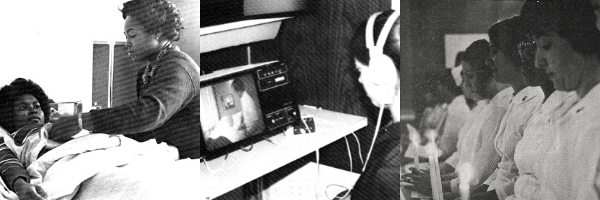Date of Award
2023
Document Type
Thesis
Degree Name
Doctor of Nursing (ND)
First Advisor
Dr. Beth Turner
Abstract
Tobacco use and the detrimental effects of tobacco use is a leading public health crisis worldwide. There is not a harmless tobacco product on the market, but cigarette smoking has the highest rates of morbidity and mortality being one of the leading causes of preventable death, disease, and disability in the United States accounting for 480,000 deaths per year and over $300 billion in healthcare expenditure and productivity losses per year (Centers for Disease Control and Prevention, 2021). Comprehensive tobacco control efforts are essential to addressing this public health crisis. Literature reviewed identified that most healthcare providers assess patients for tobacco use but do not facilitate cessation guidance thereafter despite the knowledge of the detrimental health effects. There is strong evidence from prior literature outlining the importance of identifying tobacco users and facilitating tobacco cessation. The purpose of this Doctor of Nursing Practice (DNP) quality improvement project was to evaluate if implementation of a tobacco cessation clinical intervention program within a primary care clinic would improve overall smoking cessation rates among adult patients who smoke. A systematic, clinic-wide approach was developed with educational sessions for providers that utilized the 5 A’s framework during project implementation. Descriptive and inferential statistics were utilized to compare patient’s initial and subsequent cessation visits to determine the success of cessation efforts. Data collected included intervention protocol information for 77 patients with initial visits and follow-up appointment data for 32 patients. Of the patients who attended their follow-up appointment, 9.4% had quit smoking, 53.1% had cut back, and 37.5% reported no change in their smoking status. Overall, 62.5% of those who participated in the clinical intervention program quit or cut back on smoking. The 8 9.4% of patients who had reportedly quit smoking during the implementation program is higher than the CDC 2018 report outlining that only 7.5% of adult smokers successfully quit smoking in the last year. Significant correlations existed between follow-up status and all other variables including gender, insurance, readiness to quit, counseling potential barriers, and prescription medications. Despite the small sample size and implementation time constraints, the findings suggest that when tobacco use is addressed through systematic implementation of a cessation program then positive outcomes are achievable. This project supports the need for continued education, awareness, and implementation of similar programs that systematically address tobacco use in all healthcare settings to improve quality of care and continue to address the public health crisis of tobacco use.
Recommended Citation
Graham, Foley Davis, "Implementation of a Tobacco Cessation Clinical Intervention Program" (2023). DNP Projects. 16.
https://athenacommons.muw.edu/dnp/16


